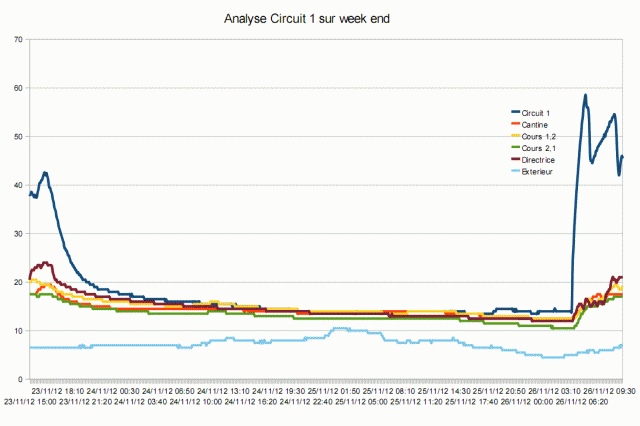http://www.terraeco.net/Faut-il-eteindr ... 47838.html
There are fans of "off everything" as soon as you go under the duvet or go for three races. And those who come out of an old lesson learned we do not know where: "We do not cut the heating, we lower it. But the truth in all this?
"It depends on the inertia of the building, responds, mysterious, Julien Bouron, energy advisor for the Nantes association Alisée. If you're in a heavy building, with big thick stones, you're going to have a slow change in temperature. In this case, we can cut everything. Same opinion from the Agency for the Environment and Energy Management (Ademe): "If we have a very well insulated house, we can afford to switch off during the day, if it is poorly insulated, rather no, "says Florence Clement, head of consumer information. Or in a more classical building, which would be neither cork nor heat colander? "The rule that you only cut the heating after two or three days of absence is probably the right one," continues Julien Bouron. Otherwise, better just go down.
Do not go down below 14 ° C
Why is that ? Because when it's chilly, a house tends to cool very quickly. And after ? "There is a risk of heating all the way in when you come in and you will have a tendency to simply go down when you have a feeling of warmth, at a time when you will probably have gone far beyond the temperature of comfort and consumed a lot. It is better not to go down below 14 ° C, otherwise the house will be very difficult to heat up, "says Florence Clément. Conversely, leaving the thermostat as high as possible can make the bill go up: "Heat loss is related to the difference in temperature between the outside and the inside. A building heated to 16 ° C will cool down less quickly than a building heated to 19 ° C, "continues Julien Bouron.
16 ° C? 19 ° C? What are these temperatures that come back constantly in the mouths of experts? They correspond to the comfort temperatures set by the ADEME in its guides (see the chapter: "Managing your heating and hot water well"). "19 ° C in the living rooms, 16 ° C in the bedrooms". The problem is that comfort does not only depend on the temperature of the room. "You may be in a situation of discomfort at 22 ° C if there is a big difference in temperature between the heated air in the room and the temperature of the wall. If the wall is poorly insulated and it is 14 ° C, it will return cold radiation and therefore a feeling of cold, "says Florence Clément. "It also depends on everyone's metabolism. Seniors or young children will not be in a comfort situation at 19 ° C. Other people will be very good at 16 ° C during the day, "continues the Alisée specialist. 19 ° C is therefore an indication. But aiming at them in any case an advantage: to go from 20 ° C to 19 ° C would save 7% of energy still according to Ademe.
Clean the boiler and redo the window seals
What else can be done to lower the bill? Clean the boiler: "It must be cleaned at least once a year. And casings of wooden appliances cleaned twice a year. It's safe, since it avoids fire problems. And it improves the yield, "says Julien Bouron. The most ambitious will change their old boiler altogether for a new one. "The boilers of today are very efficient compared to those of twenty years ago, comments the specialist Ademe. In particular condensing boilers that recover some of the energy of the gases released to heat the water. "If we have windows leaks and we are renting or we can not afford to change them," we can at least redo the joints. We can not let the cold air seep in like this. Ditto for the doors that can be isolated. And the curtains: "They will serve mainly to reduce the cool radiation, so the discomfort. "But above all, there is a technique well known to southerners who uses it for the opposite effect:" In times of extreme cold, we can keep the shutters closed, says Florence Clément. It helps to keep the heat of the habitat a little more. "





